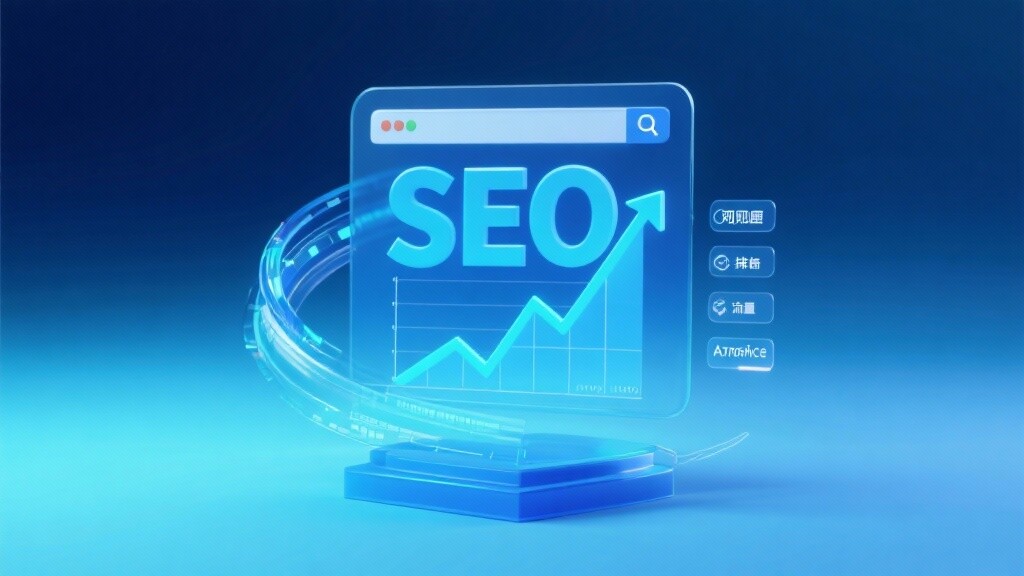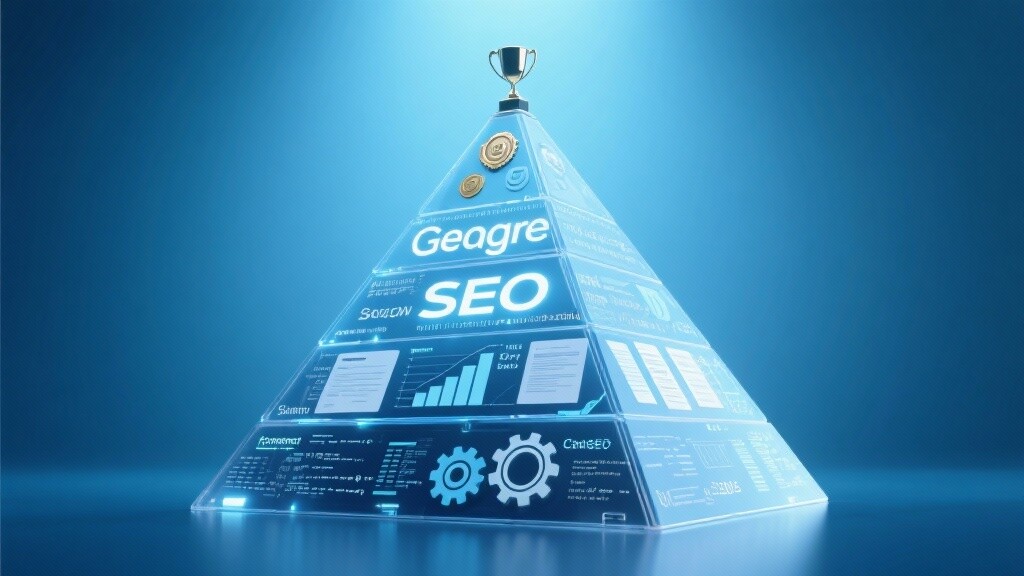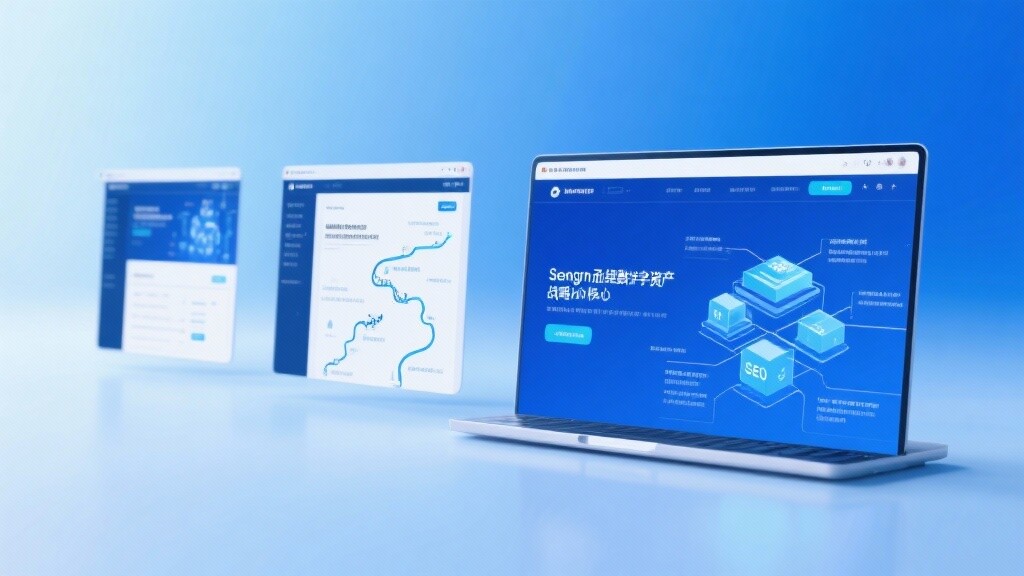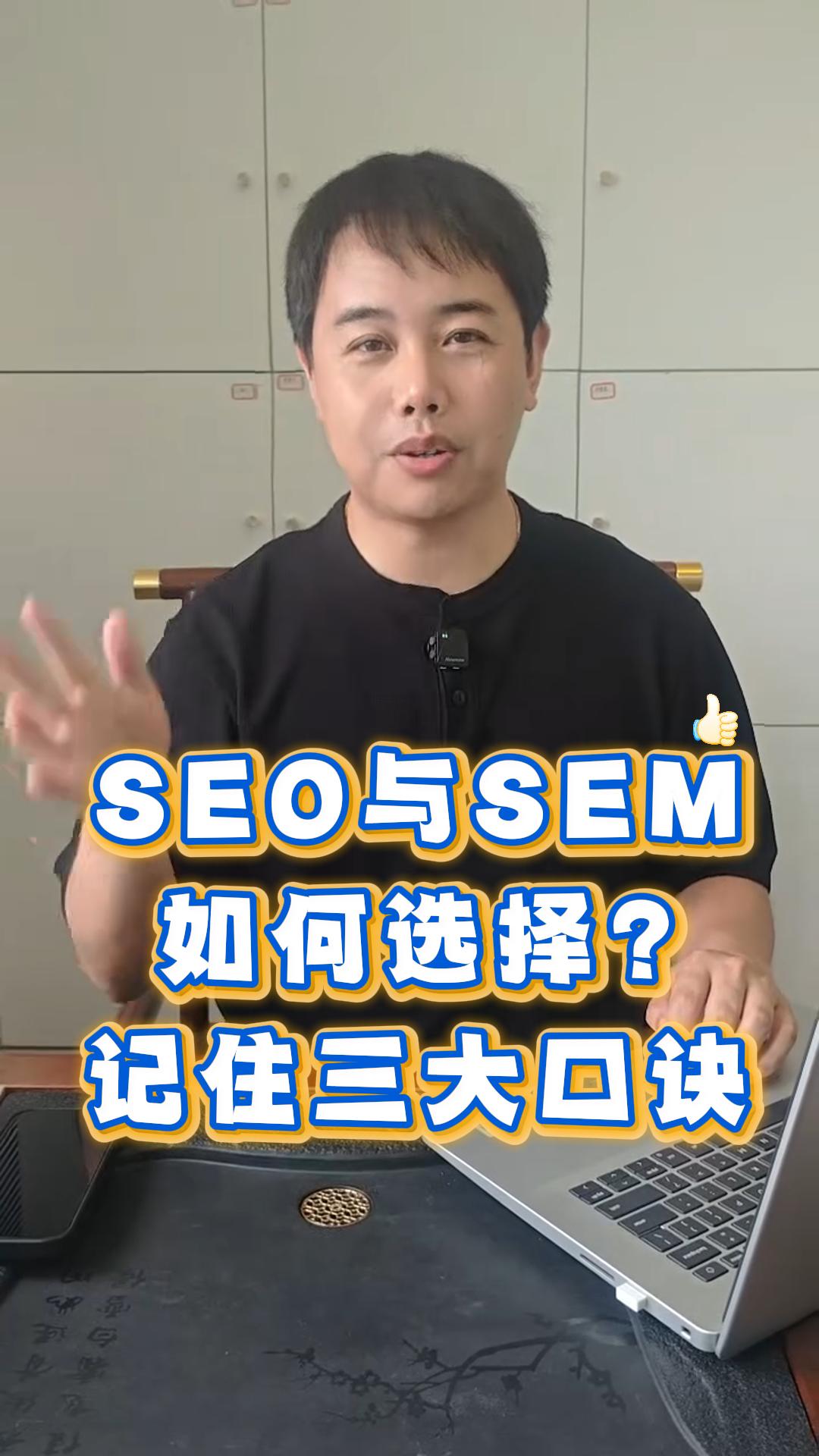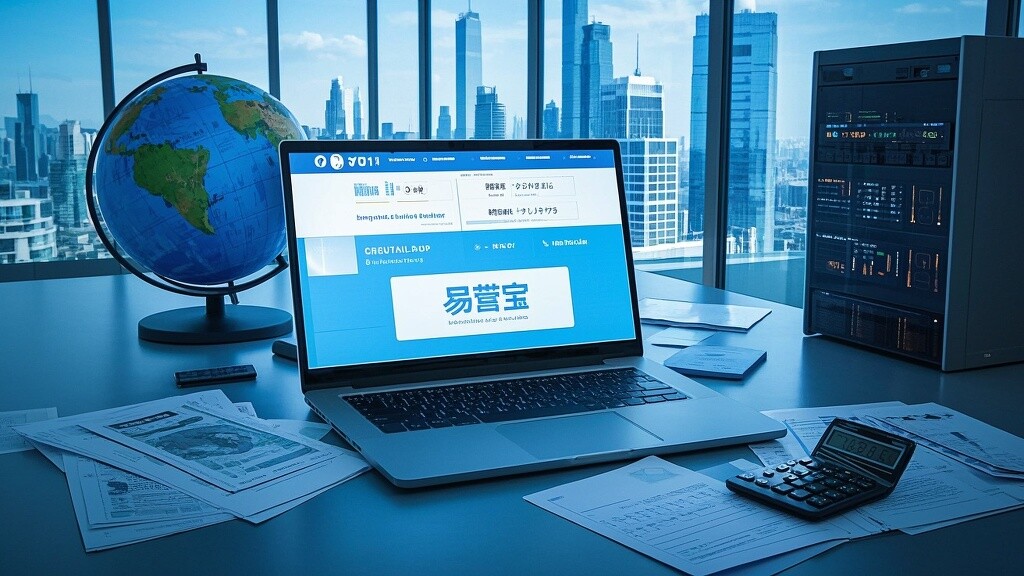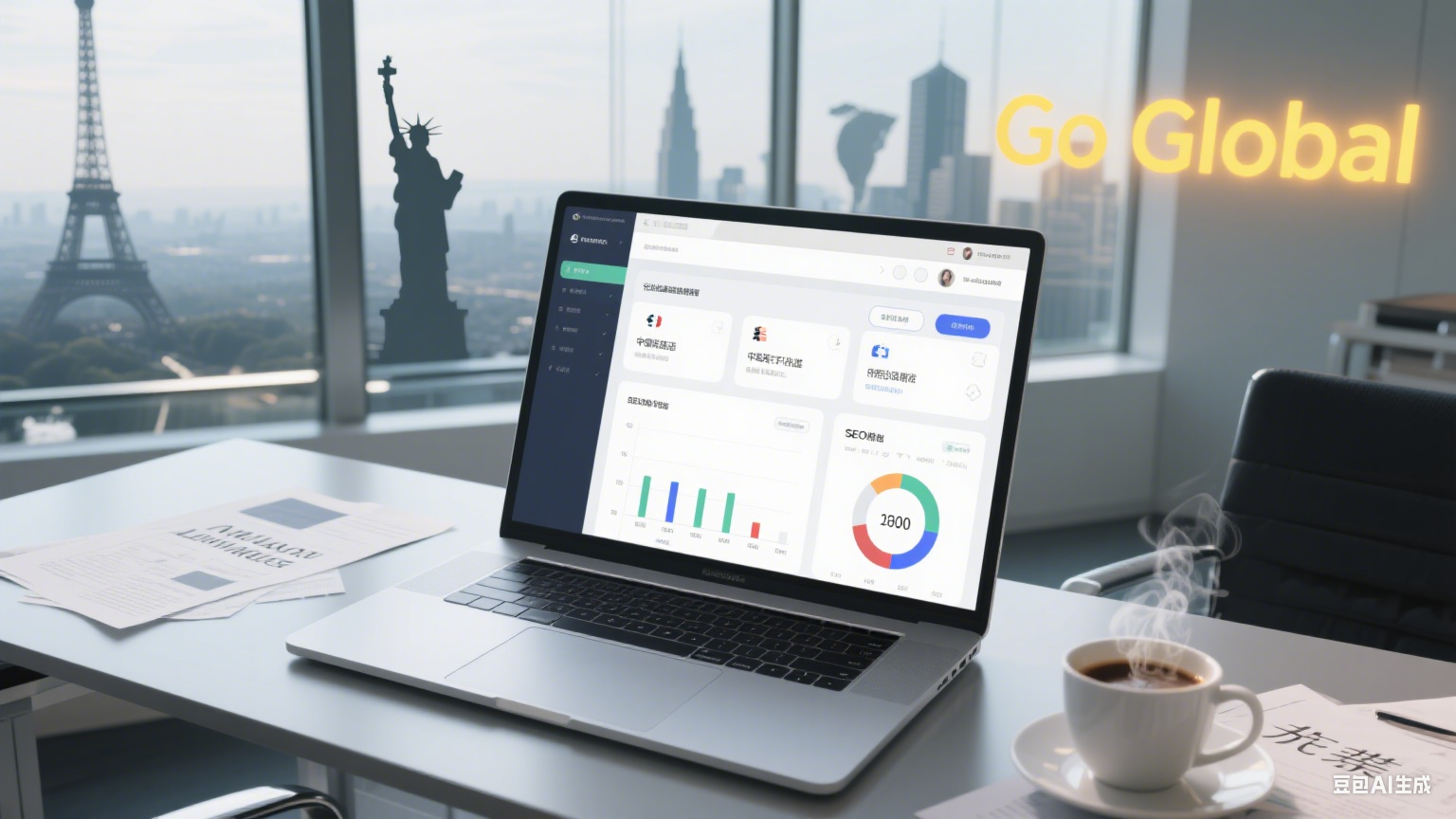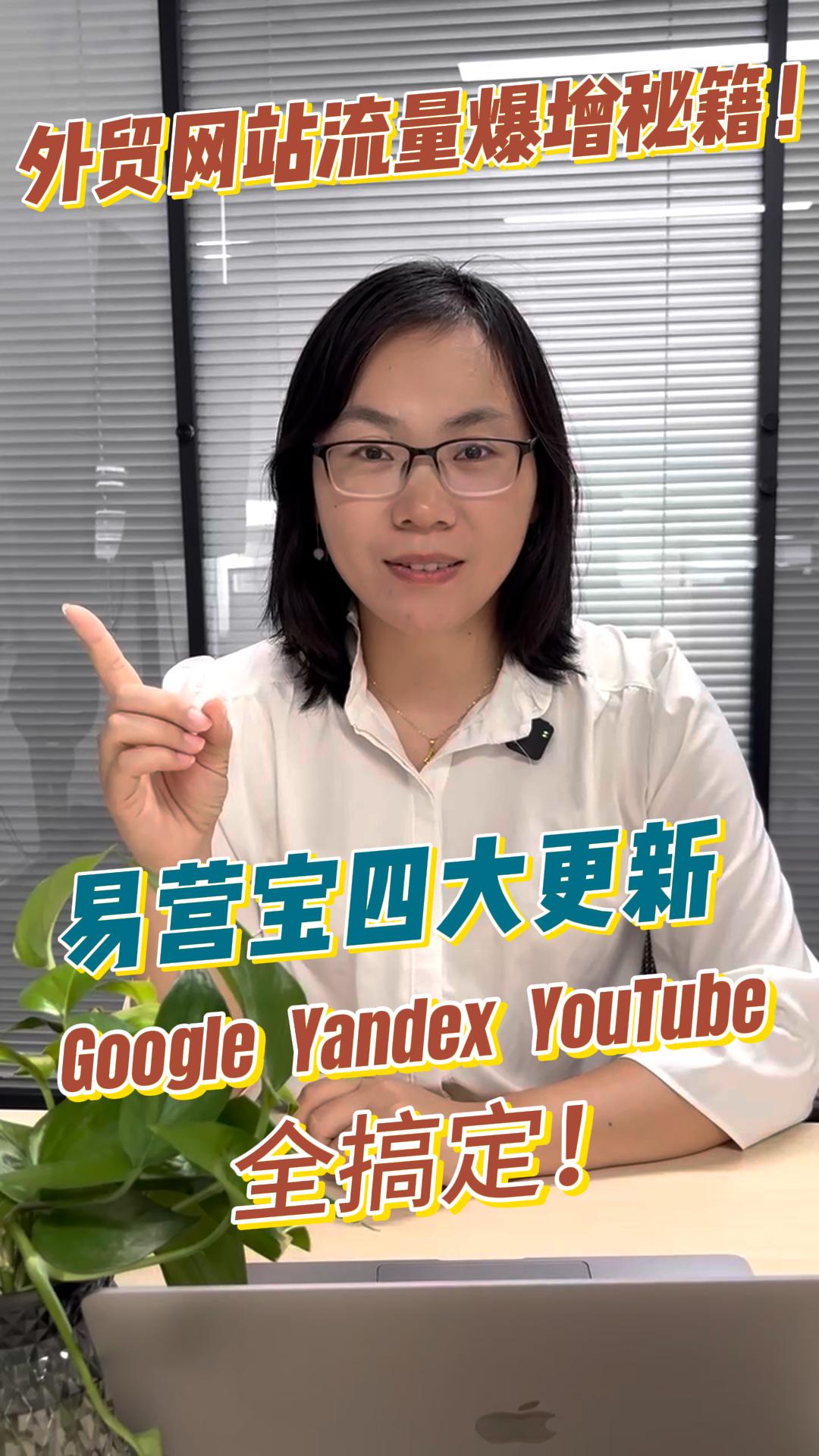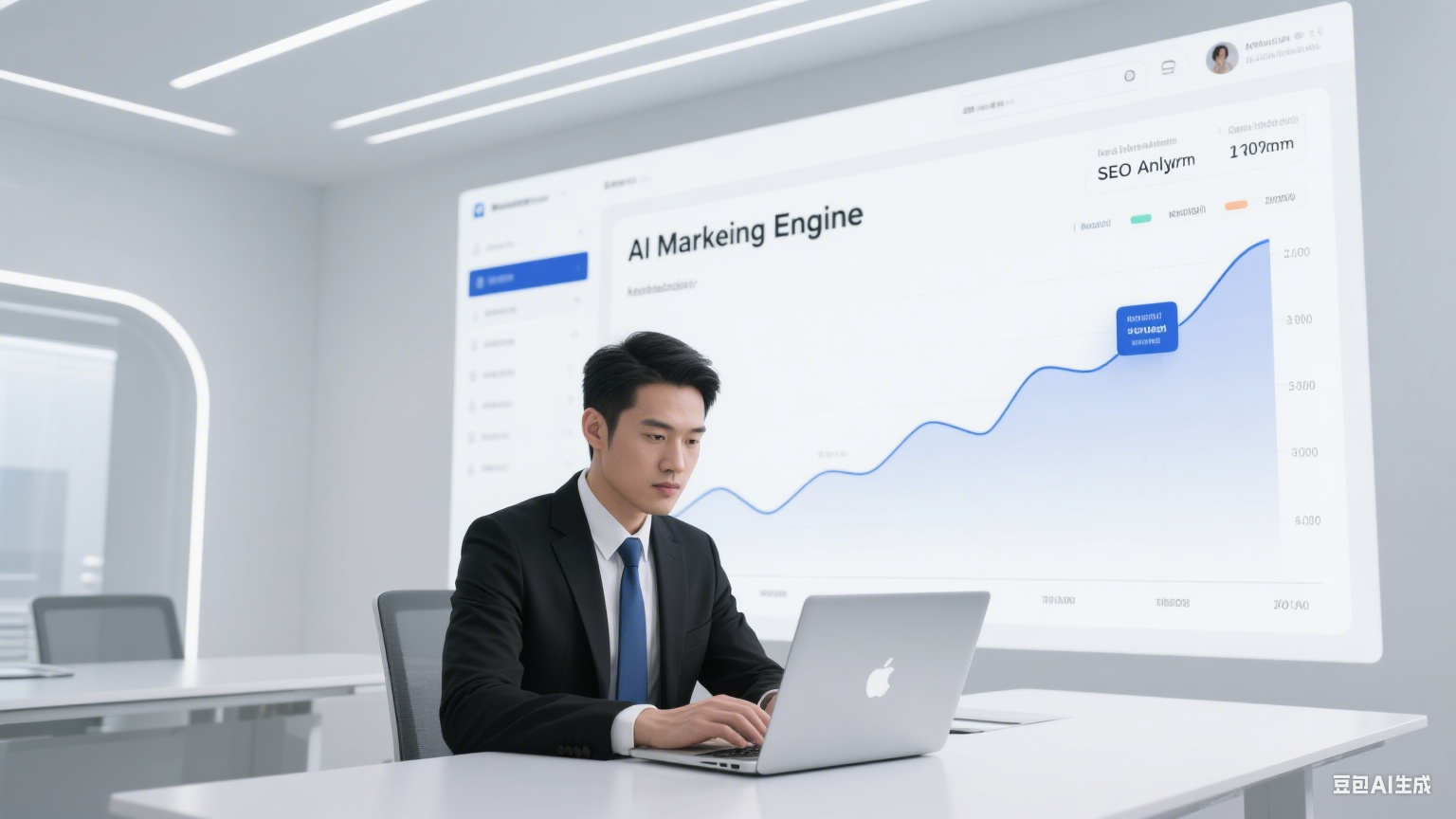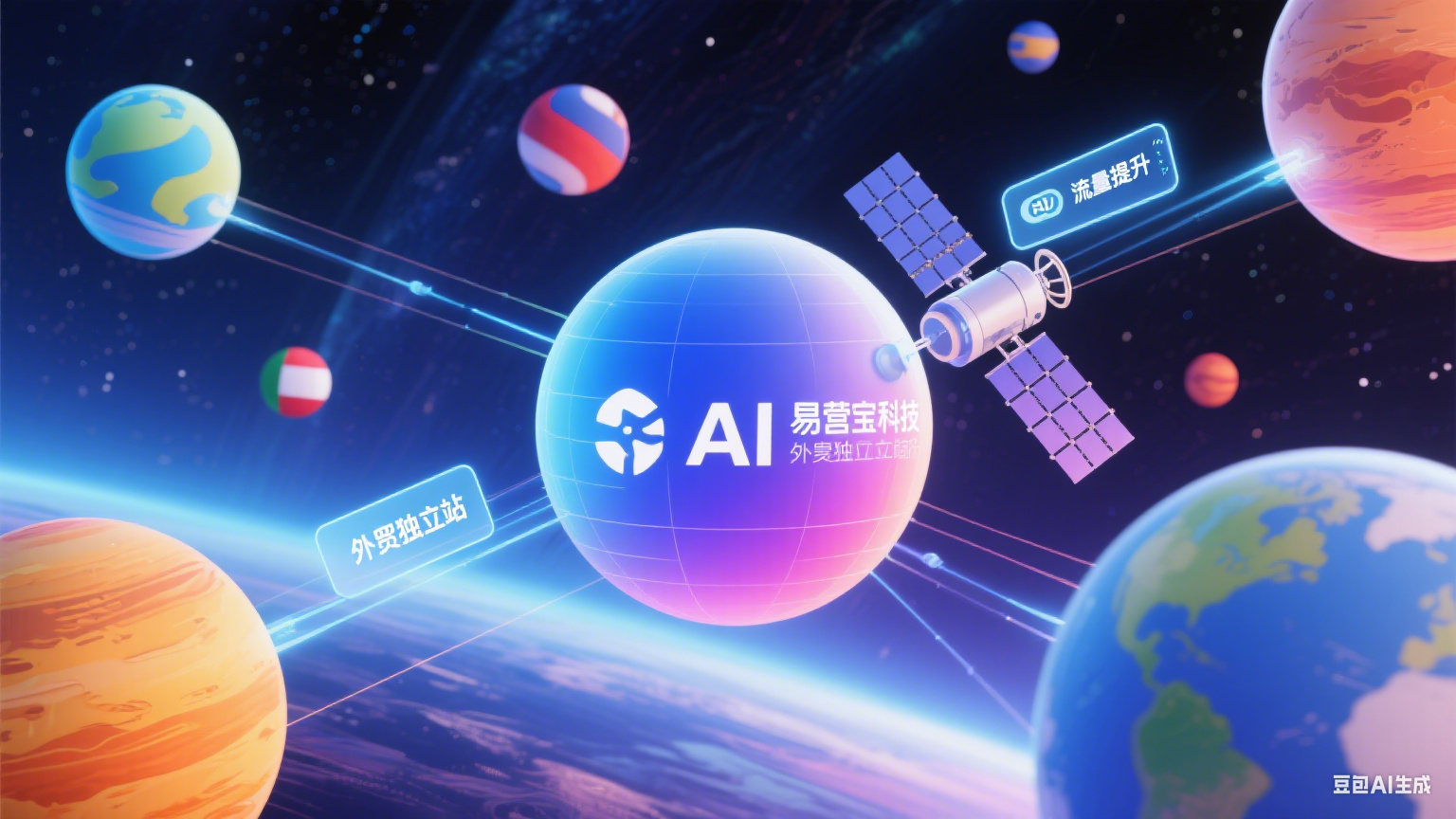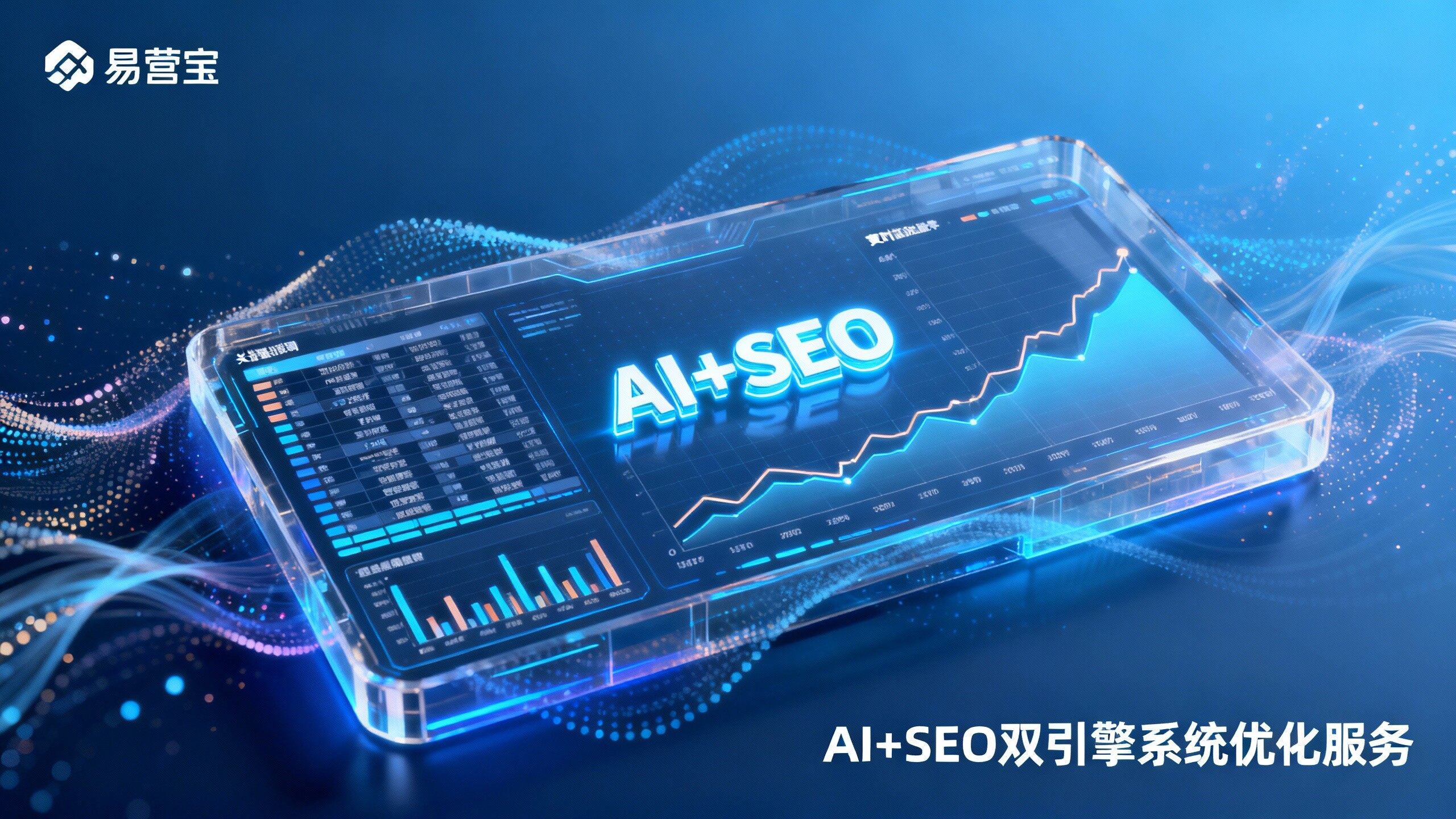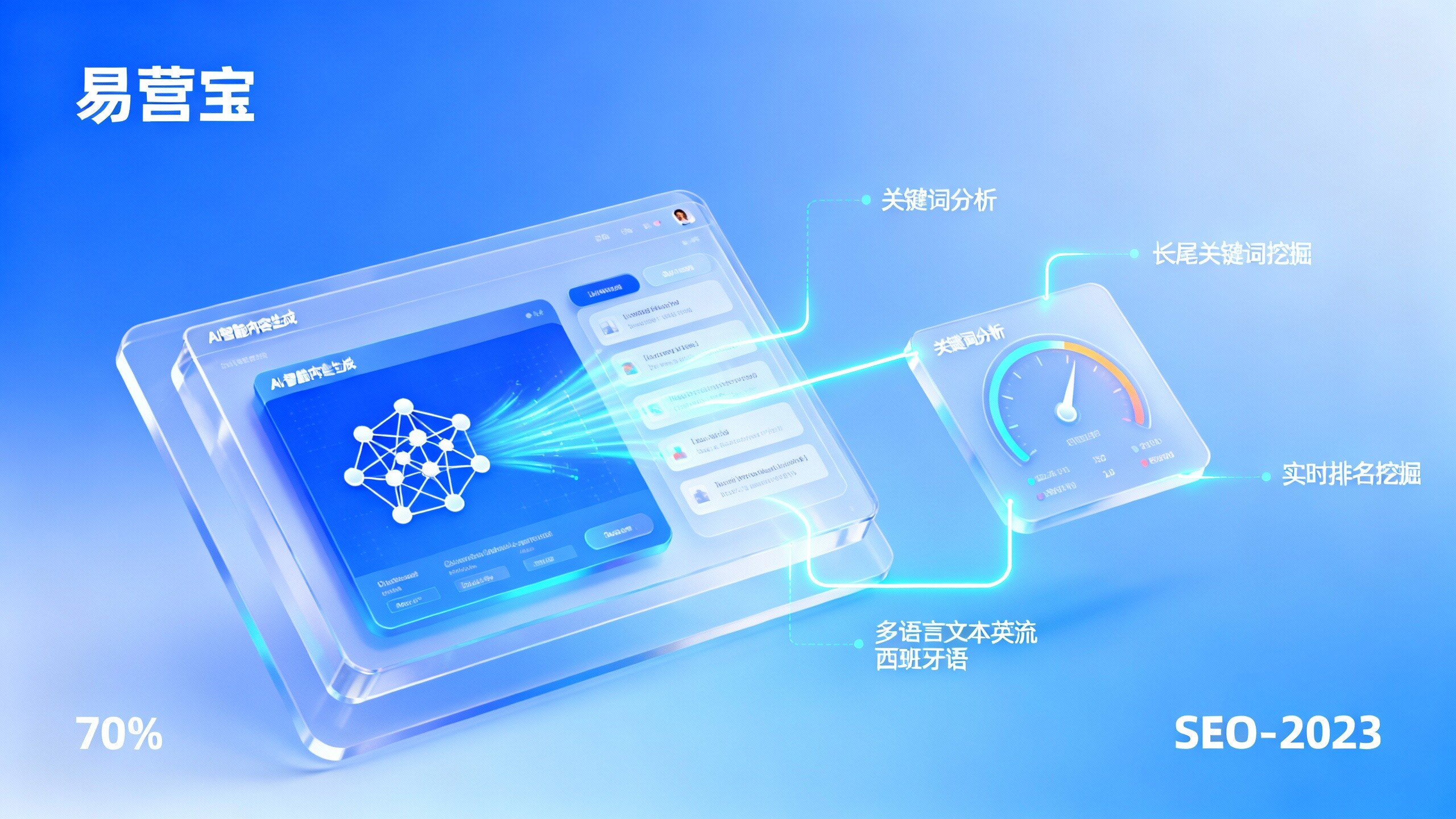Definition of Search Engine Optimization: A Systematic Engineering to Drive Natural Search Traffic and Rankings
Search Engine Optimization (SEO) refers to improving a website's technical architecture, content quality, user experience, and external credibility, thereby enhancing its **visibility (Visibility) and ranking (Ranking)** in the natural search results of search engines (such as Google, Baidu, etc.).
Core Strategic Goals of Search Engine Optimization:
Improved Visibility (Visibility): Ensure the website can be correctly crawled (Crawl) and indexed (Index) by search engines.
Ranking Acquisition (Ranking): Push target keyword pages into the first page of search results (SERP Top 10), especially the top three positions (Top 3).
Traffic Growth (Traffic): Continuously acquire precise, free, high-intent natural search traffic.
Brand Authority (Authority): Through high rankings and high-quality content, establish the website as an industry benchmark for E-E-A-T (Experience, Expertise, Authoritativeness, Trustworthiness).
The Intrinsic Value of Search Engine Optimization: Achieve the highest long-term digital asset returns with the lowest long-term costs.
The Evolution of Search Engine Optimization: From "Keyword Stuffing" to "User-Centric" Algorithm Advancements
The history of search engine optimization reflects the continuous intelligence upgrades of search engine algorithms, with its core philosophy undergoing a revolutionary shift from focusing on **"machines" to focusing on "users"**.
1. Early Stage: Keyword Density and Link Quantity (1990s-2003)
Focus: Relied heavily on page keyword density and pure quantity of backlinks.
Characteristics: Rankings could be easily manipulated through black-hat techniques (e.g., hidden text, link farms), resulting in extremely poor user experience.
2. PageRank and Algorithm Penalty Era (2003-2015):
Milestone: Google introduced the PageRank algorithm, emphasizing the quality and authority of links over quantity.
Major Updates:
Panda: Penalized low-quality, thin-content websites, emphasizing content quality.
Penguin: Penalized spammy and unnatural links, emphasizing link naturalness.
Impact: SEO began shifting toward content creation and high-quality link building.
3. Mobile and Semantic Search (2015-2020):
Technology-Driven: Introduction of Mobile-First Indexing, making mobile device compatibility a mandatory ranking factor.
AI Algorithms: Applications like RankBrain enabled search engines to understand the true intent (Search Intent) and semantics behind search queries, not just keyword matching.
4. Experience, Performance, and E-E-A-T Authority System (2020-Present):
User Experience Quantification: The introduction of Core Web Vitals quantified website loading speed and stability as core ranking signals.
Highest Standard: E-A-T was upgraded to E-E-A-T (Experience, Expertise, Authoritativeness, Trustworthiness). In high-risk (YMYL) fields, content lacking real expert experience and authoritative backing almost never achieves high rankings.
The Technical Principles of Search Engine Optimization: Systematic Collaboration of Three Core Pillars
The success of modern search engine optimization is built on the perfect synergy of technology, content, and authority.
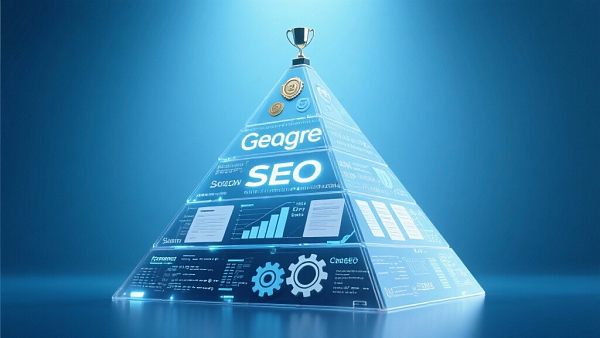
1. Technical SEO: The Foundation of Rankings
Principle: Ensure the technical foundation of a website is search-engine-friendly, eliminating all crawling and indexing obstacles.
Crawl Budget and Efficiency: Optimize Robots.txt and Sitemap.xml to ensure crawlers allocate limited resources to the most important pages.
Website Health and Speed: Optimize Core Web Vitals (LCP, INP, CLS) to ensure fast page loading, low interaction delay, and compliance with Google's quantified user experience standards.
Structure and Accessibility: Clear URL structure, correct HTTPS deployment, mobile-responsive design, and appropriate use of Schema structured data to help search engines understand content.
2. Content SEO: Intent and Value Matching
Principle: Create highly user-intent-matching, original, in-depth, and E-E-A-T-compliant high-quality content.
Search Intent Analysis: Determine the user's purpose behind keywords (e.g., informational, transactional, navigational, commercial investigation) and provide the most suitable content format (blog articles, product pages, guides).
Keyword Clusters (Topic Cluster): Build multiple interlinked long-tail keyword subpages around a core topic, collectively establishing the topic's depth and authority.
Content Expertise: Ensure content is accurate, comprehensive, and highlights the author's professional qualifications and experience in high-risk content.
3. Off-Page SEO: Credibility and Authority Backing
Principle: Establish and maintain a brand's authority, trustworthiness, and recognition externally, which is a critical "voting" mechanism for algorithms to assess a website's value.
High-Quality Backlinks: Acquire natural links from industry authorities, high-authority, and relevant websites. This remains one of the most important signals for ranking high-competition keywords.
Brand Mentions and PR: Through content marketing and digital PR activities, ensure the brand name is naturally mentioned and positively discussed in authoritative media, industry forums, and social platforms.
Local SEO: For businesses serving local clients, optimize Google My Business profiles and local citations.
Technical Features and Business Application Advantages of Search Engine Optimization
The value of SEO lies in its sustainability, efficiency, and low long-term costs, making it the most stable customer acquisition channel for modern businesses.
1. Sustainable Low-Cost Customer Acquisition Model
Feature: Unlike the "pay-per-click" model of paid ads (SEM), SEO traffic, once acquired, can continue to flow in for free as long as optimizations are maintained.
Advantage: Over time, SEO's average customer acquisition cost (CAC) continues to decline, far below that of any other marketing channel.
2. Extremely High Traffic Conversion Efficiency
Feature: SEO traffic comes from users actively and explicitly searching for specific needs, making it high-intent traffic.
Advantage: The conversion rate of such traffic is typically much higher than that of display ads or social media traffic, directly contributing to high-value sales or inquiries.
3. Brand Authority and Market Defense
Feature: High SEO rankings themselves serve as a powerful brand endorsement. Users tend to trust top-ranking websites as more professional and reliable.
Advantage: This authority is difficult for competitors to quickly replicate, establishing a long-term traffic and brand defense moat for businesses.
4. Resistance to Algorithm Risks and Future AdaptabilityFeature: Professional SEO follows white-hat strategies, emphasizing the underlying health and user experience of websites.
Advantage: Websites gain stronger risk resistance, adapting to future algorithm updates (e.g., Core Web Vitals evolution) and avoiding major ranking fluctuations due to algorithm adjustments.
5. Full-Funnel Marketing Coverage
Feature: SEO can cover users' entire decision journey from **information gathering (long-tail keywords) to final purchase (brand/transaction keywords)**.
Application: Use blogs to capture top-of-funnel (ToFu) traffic; use product pages to convert bottom-of-funnel (BoFu) traffic.
In-Depth Applications and Strategic Deployment of Search Engine Optimization
A successful search engine optimization strategy requires integrating technology, content, and authority into a company's overall digital strategy.
1. Cross-Border and Multilingual SEO
Application: Use hreflang tags, country/region-specific URL structures, and localized content strategies to ensure optimal rankings in different global regions.
Value: Helps businesses enter and dominate international markets at the lowest cost.
2. Structured Data and Rich Snippet Rankings (Rich Snippets)
Application: Correctly deploy Schema structured data (e.g., review stars, FAQ, How-To).
Value: Helps websites achieve rich snippets (Rich Snippets) and position zero (Position Zero) in search results, significantly improving click-through rates (CTR) and visibility.
3. Voice Search Optimization
Application: Optimize content to answer users' spoken long-tail questions, ensuring website information can be accurately captured by voice assistants (e.g., Siri, Alexa).
Value: Adapts to changing user search habits, capturing emerging traffic entry points.
4. SEO and Conversion Rate Optimization (CRO) Synergy
Application: Direct high-intent SEO traffic to landing pages optimized through A/B testing and user experience (UX) improvements.
Value: Ensures high-ranking traffic is maximally converted into sales, inquiries, or subscriptions, directly reflecting SEO value on financial reports.
EasyProfit: Your Search Engine Optimization Strategy Consultant and Growth Engine
EasyProfit deeply understands that SEO is a scientific marathon. Our SEO optimization services are based on the latest algorithm insights, in-depth data analysis, and full-funnel systematic engineering solutions.
SEO Deep Diagnosis and Priority Sorting: Conduct a 360-degree audit of your website's technology, content, and authority, identifying high-leverage optimization opportunities to ensure resources are invested in the most effective areas.
E-E-A-T Authority System Construction: Develop a content cluster strategy, guiding you to establish and strengthen author expertise and website credibility in content, meeting search engines' highest trust standards.
High-Performance Optimization and Core Web Vitals Compliance: Optimize from the code to server level, ensuring your website surpasses all competitors in mobile loading speed and user experience.
High-Quality Backlinks and Brand PR: Focus on acquiring genuine, high-authority industry links through content promotion, digital PR, and other white-hat methods to stabilize rankings.
SEO and Conversion Rate Optimization (CRO) Integration: Ensure high-ranking traffic is converted into actual sales or inquiries through optimized landing pages, CTA designs, maximizing ROI.
Choose EasyProfit, and let your search engine optimization no longer be blind technical operations but a goal-oriented, data-transparent, sustainable driver of brand and sales growth strategic investment.
Feature: Professional SEO follows white-hat strategies, emphasizing the underlying health and user experience of websites.
Advantage: Websites gain stronger risk resistance, adapting to future algorithm updates (e.g., Core Web Vitals evolution) and avoiding major ranking fluctuations due to algorithm adjustments.
Feature: SEO can cover users' entire decision journey from **information gathering (long-tail keywords) to final purchase (brand/transaction keywords)**.
Application: Use blogs to capture top-of-funnel (ToFu) traffic; use product pages to convert bottom-of-funnel (BoFu) traffic.
Application: Use hreflang tags, country/region-specific URL structures, and localized content strategies to ensure optimal rankings in different global regions.
Value: Helps businesses enter and dominate international markets at the lowest cost.
Application: Correctly deploy Schema structured data (e.g., review stars, FAQ, How-To).
Value: Helps websites achieve rich snippets (Rich Snippets) and position zero (Position Zero) in search results, significantly improving click-through rates (CTR) and visibility.
Application: Optimize content to answer users' spoken long-tail questions, ensuring website information can be accurately captured by voice assistants (e.g., Siri, Alexa).
Value: Adapts to changing user search habits, capturing emerging traffic entry points.
Application: Direct high-intent SEO traffic to landing pages optimized through A/B testing and user experience (UX) improvements.
Value: Ensures high-ranking traffic is maximally converted into sales, inquiries, or subscriptions, directly reflecting SEO value on financial reports.
SEO Deep Diagnosis and Priority Sorting: Conduct a 360-degree audit of your website's technology, content, and authority, identifying high-leverage optimization opportunities to ensure resources are invested in the most effective areas.
E-E-A-T Authority System Construction: Develop a content cluster strategy, guiding you to establish and strengthen author expertise and website credibility in content, meeting search engines' highest trust standards.
High-Performance Optimization and Core Web Vitals Compliance: Optimize from the code to server level, ensuring your website surpasses all competitors in mobile loading speed and user experience.
High-Quality Backlinks and Brand PR: Focus on acquiring genuine, high-authority industry links through content promotion, digital PR, and other white-hat methods to stabilize rankings.
SEO and Conversion Rate Optimization (CRO) Integration: Ensure high-ranking traffic is converted into actual sales or inquiries through optimized landing pages, CTA designs, maximizing ROI.
FAQ
1. How long does it take to see results from search engine optimization (SEO)?
It typically takes 6-12 months to see significant, stable ranking improvements and traffic growth.
Factors: The timeline depends on competition intensity, current website health status, and keyword difficulty selection.
Process: Search engines require time to crawl and re-index your optimized content and evaluate newly added authority signals (e.g., backlinks). This is a long-term investment, not short-term tactics.
2. How should search engine optimization (SEO) and paid search advertising (SEM) be combined?
They are complementary and should work synergistically.
Data synergy: Use SEM to quickly test high-converting keywords and copy, then apply these insights to SEO content and title optimization.
Traffic layering: Leverage SEO for stable, long-term, low-cost organic traffic; deploy SEM to capture short-term hotspots, high-competition terms, or test new markets.
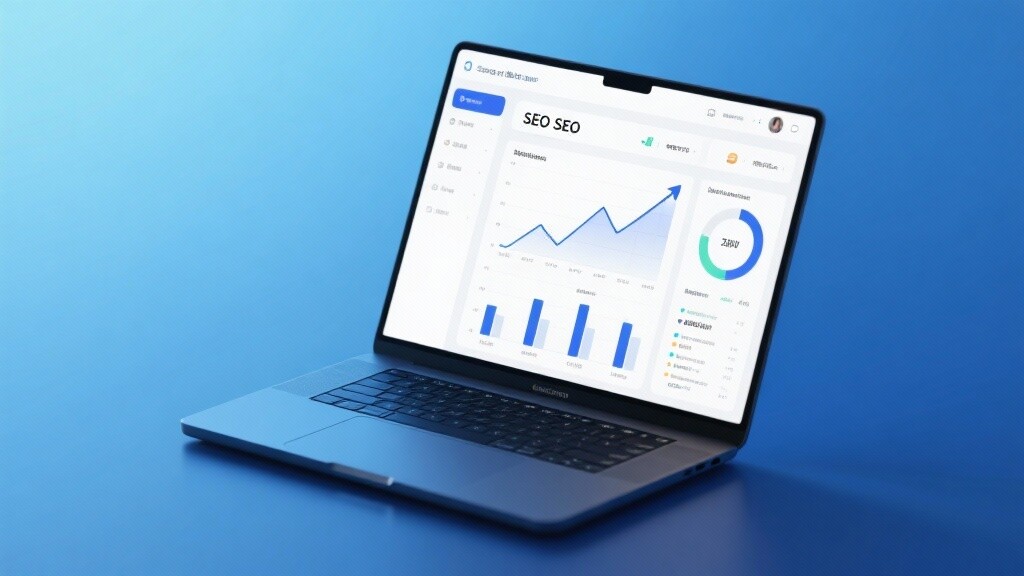
Customer Reviews
Mr. Song, CMO of a B2B industrial technology company
"We previously relied entirely on trade shows and paid ads for lead generation, with unsustainable costs. EasyWin developed a technical SEO repair + E-E-A-T content strategy for us. They not only fixed our website's major Core Web Vitals performance issues but also guided us in creating high-value guides and whitepapers addressing industry pain points. Within a year, all our core inquiry keywords reached Google's first page, with organic search contributing 65% of new leads. This proves SEO is our most stable customer acquisition channel."
Ms. He, Founder of a financial investment education platform
"In the fiercely competitive financial market, we needed exceptional brand authority. EasyWin's SEO strategy emphasized content clusters and authoritative backlink building. They helped establish clear author credential pages and secured high-quality backlinks through content partnerships with major financial media. Now we dominate numerous Featured Snippets in knowledge-based search results, with significantly enhanced brand authority and professional credibility, directly driving stable growth in paid course conversions."
![How to choose between Seo and Sem, remember the three main phrases How to choose between Seo and Sem, remember the three main phrases]() How to choose between Seo and Sem, remember the three main phrasesThis article shares the top three tips for SEO and SEM selection to help you make informed decisions in a competitive market. Whether it's a cold industry or a red sea battleground, you can find the best promotion strategy.
How to choose between Seo and Sem, remember the three main phrasesThis article shares the top three tips for SEO and SEM selection to help you make informed decisions in a competitive market. Whether it's a cold industry or a red sea battleground, you can find the best promotion strategy.![Rapidly deploy multilingual websites, empowering global expansion for B2B export enterprises! Rapidly deploy multilingual websites, empowering global expansion for B2B export enterprises!]() Rapidly deploy multilingual websites, empowering global expansion for B2B export enterprises!This system outlines the technical approaches and marketing values in multilingual website development, combining practical case studies from Easymp AI website-building platform to provide comprehensive solutions for foreign trade enterprises—from site construction to traffic acquisition.
Rapidly deploy multilingual websites, empowering global expansion for B2B export enterprises!This system outlines the technical approaches and marketing values in multilingual website development, combining practical case studies from Easymp AI website-building platform to provide comprehensive solutions for foreign trade enterprises—from site construction to traffic acquisition.![Exclusive Guide to High-Conversion Foreign Trade Independent Website Construction, Shared by Beijing Suppliers! Exclusive Guide to High-Conversion Foreign Trade Independent Website Construction, Shared by Beijing Suppliers!]() Exclusive Guide to High-Conversion Foreign Trade Independent Website Construction, Shared by Beijing Suppliers!This article details core strategies for building high-converting foreign trade independent websites, including multilingual website setup, SEO optimization tools, social media marketing matrix construction, and practical cases using ESBuild AI website building systems to provide businesses with actionable solutions.
Exclusive Guide to High-Conversion Foreign Trade Independent Website Construction, Shared by Beijing Suppliers!This article details core strategies for building high-converting foreign trade independent websites, including multilingual website setup, SEO optimization tools, social media marketing matrix construction, and practical cases using ESBuild AI website building systems to provide businesses with actionable solutions.![Quickly build a multilingual website to help businesses expand into the international market! Quickly build a multilingual website to help businesses expand into the international market!]() Quickly build a multilingual website to help businesses expand into the international market!This article details the key elements of multilingual website construction, including technical implementation, SEO optimization strategies, and marketing tool integration, providing enterprises with a one-stop internationalization solution.
Quickly build a multilingual website to help businesses expand into the international market!This article details the key elements of multilingual website construction, including technical implementation, SEO optimization strategies, and marketing tool integration, providing enterprises with a one-stop internationalization solution.![Google, Yandex, YouTube All Covered! EasyOperation Upgrade Boosts Global Customer Acquisition Google, Yandex, YouTube All Covered! EasyOperation Upgrade Boosts Global Customer Acquisition]() Google, Yandex, YouTube All Covered! EasyOperation Upgrade Boosts Global Customer AcquisitionEasyOperation Upgrade with Four Major Features to Help Foreign Trade Websites Acquire Customers Globally, Including New Google Page Detection, Yandex Webmaster Tools, and YouTube Synchronization Features, Enhancing User Experience and Multi-Channel Traffic Generation.
Google, Yandex, YouTube All Covered! EasyOperation Upgrade Boosts Global Customer AcquisitionEasyOperation Upgrade with Four Major Features to Help Foreign Trade Websites Acquire Customers Globally, Including New Google Page Detection, Yandex Webmaster Tools, and YouTube Synchronization Features, Enhancing User Experience and Multi-Channel Traffic Generation.![Free website construction + SEO optimization, an all-in-one solution is here! Free website construction + SEO optimization, an all-in-one solution is here!]() Free website construction + SEO optimization, an all-in-one solution is here!This article provides a detailed introduction to how YYinbao's intelligent marketing platform employs AI technology to offer an integrated service of free website construction and SEO optimization, encompassing features like multilingual website setup, smart SEO tools, and a global traffic ecosystem, delivering high-efficiency digital marketing solutions for businesses.
Free website construction + SEO optimization, an all-in-one solution is here!This article provides a detailed introduction to how YYinbao's intelligent marketing platform employs AI technology to offer an integrated service of free website construction and SEO optimization, encompassing features like multilingual website setup, smart SEO tools, and a global traffic ecosystem, delivering high-efficiency digital marketing solutions for businesses.![Lacking an independent website SEO strategy? These tools can help! Lacking an independent website SEO strategy? These tools can help!]() Lacking an independent website SEO strategy? These tools can help!This article delves into how effective SEO tools can elevate your independent website's search engine rankings and visibility, empowering B2B enterprises to succeed in global markets. By exploring various tools' functionalities, use cases, and real-world applications, we provide clear optimization pathways. Key solutions like AI marketing engines, smart CMS platforms, and social media automation tools will help your business stand out in competitive markets.
Lacking an independent website SEO strategy? These tools can help!This article delves into how effective SEO tools can elevate your independent website's search engine rankings and visibility, empowering B2B enterprises to succeed in global markets. By exploring various tools' functionalities, use cases, and real-world applications, we provide clear optimization pathways. Key solutions like AI marketing engines, smart CMS platforms, and social media automation tools will help your business stand out in competitive markets.![How to Boost Your Foreign Trade Independent Website Traffic with Multilingual SEO? How to Boost Your Foreign Trade Independent Website Traffic with Multilingual SEO?]() How to Boost Your Foreign Trade Independent Website Traffic with Multilingual SEO?Yingbao Technology provides effective foreign trade independent website traffic enhancement solutions through multilingual SEO, driven by AI and data to help you succeed in the global market.
How to Boost Your Foreign Trade Independent Website Traffic with Multilingual SEO?Yingbao Technology provides effective foreign trade independent website traffic enhancement solutions through multilingual SEO, driven by AI and data to help you succeed in the global market.
![AI+SEO Dual Engine Optimization Service AI+SEO Dual Engine Optimization Service]() AI+SEO Dual Engine Optimization ServiceEasyWin AI+SEO Dual Engine Optimization System leverages AI-powered keyword mining, content generation, and comprehensive technical optimization to help foreign trade enterprises acquire high-quality organic traffic, significantly improving search rankings and conversion rates.
AI+SEO Dual Engine Optimization ServiceEasyWin AI+SEO Dual Engine Optimization System leverages AI-powered keyword mining, content generation, and comprehensive technical optimization to help foreign trade enterprises acquire high-quality organic traffic, significantly improving search rankings and conversion rates.![SEO Optimization SEO Optimization]() SEO OptimizationE-Yingbao offers professional SEO optimization services, including AI-powered article writing, product descriptions, keyword recommendations, keyword expansion, TDK generation, and image creation. We help businesses boost their search engine rankings and achieve targeted marketing.
SEO OptimizationE-Yingbao offers professional SEO optimization services, including AI-powered article writing, product descriptions, keyword recommendations, keyword expansion, TDK generation, and image creation. We help businesses boost their search engine rankings and achieve targeted marketing.

